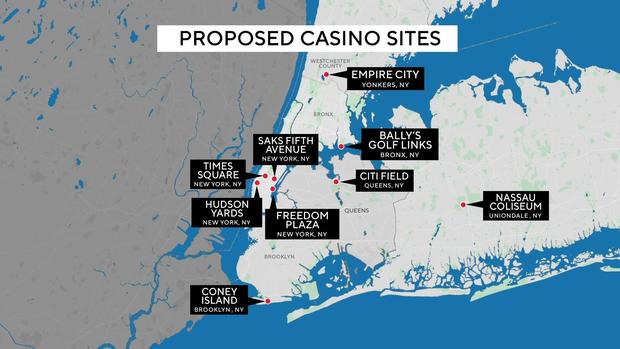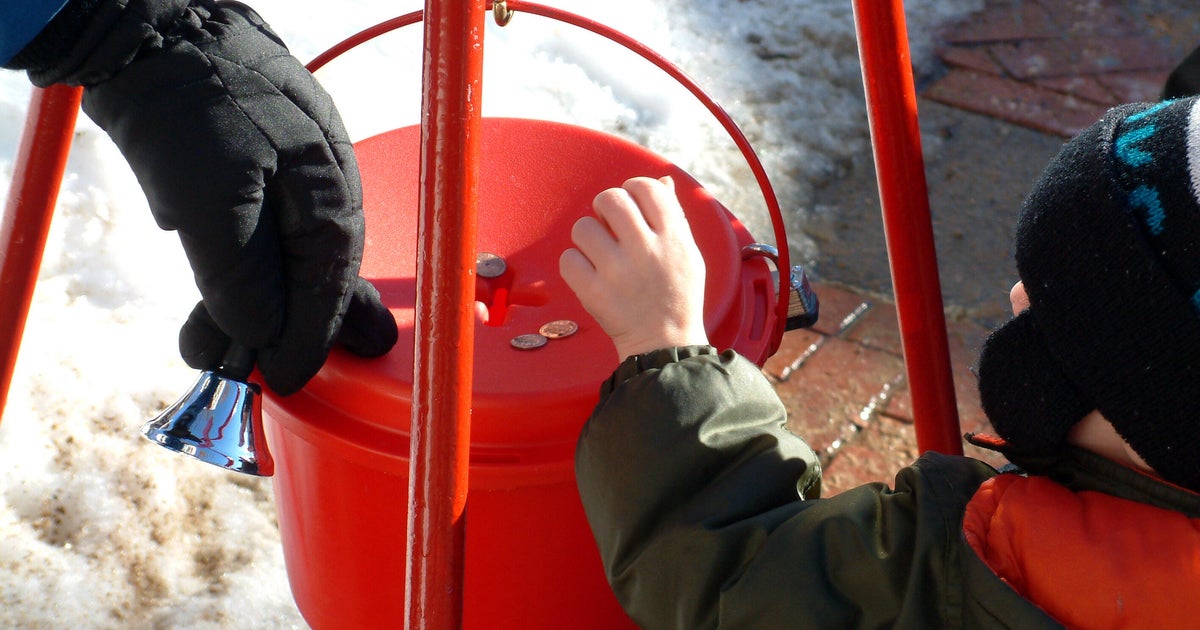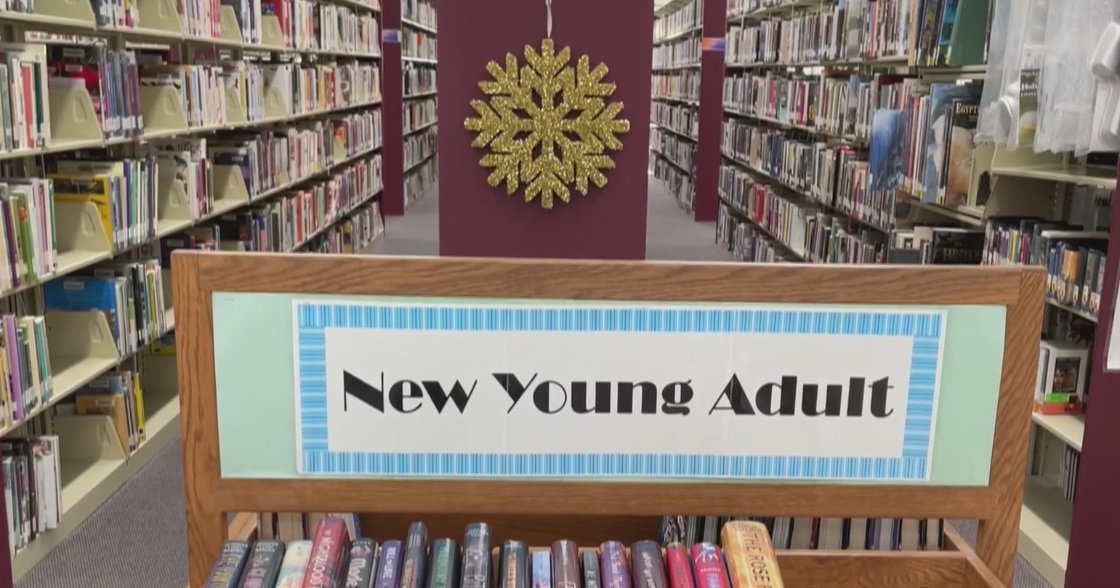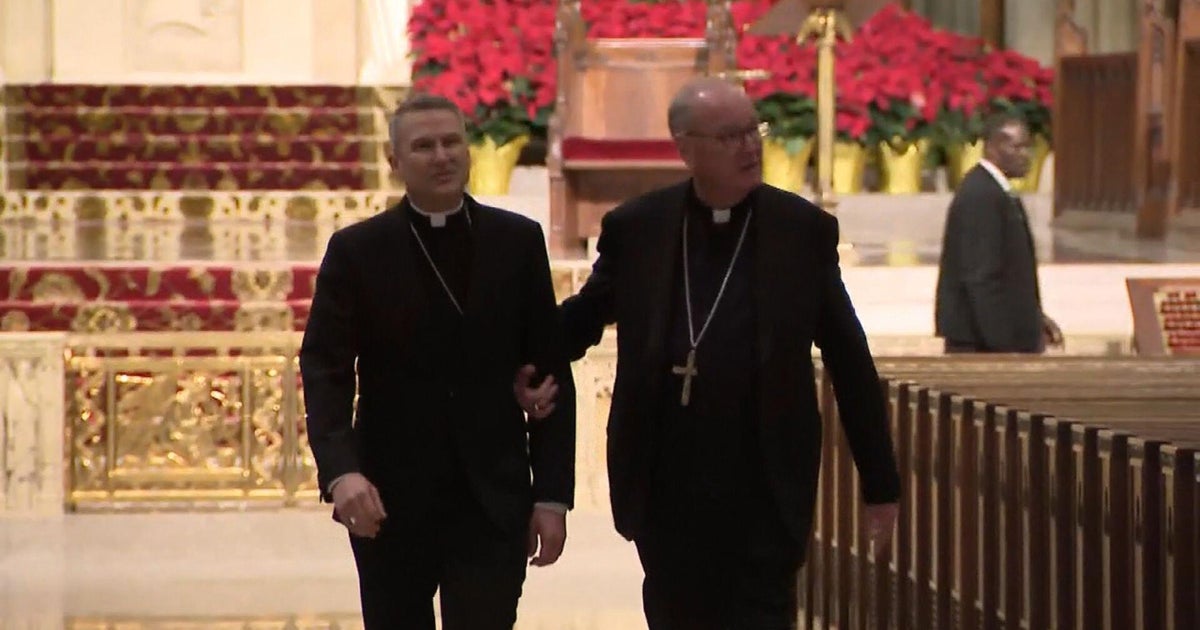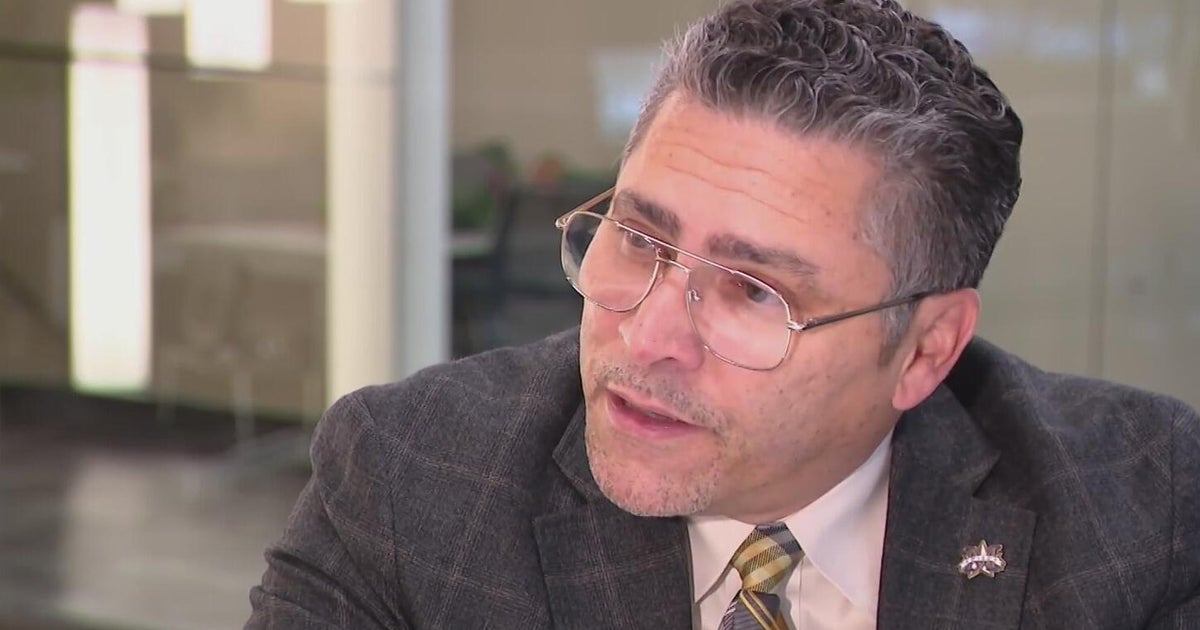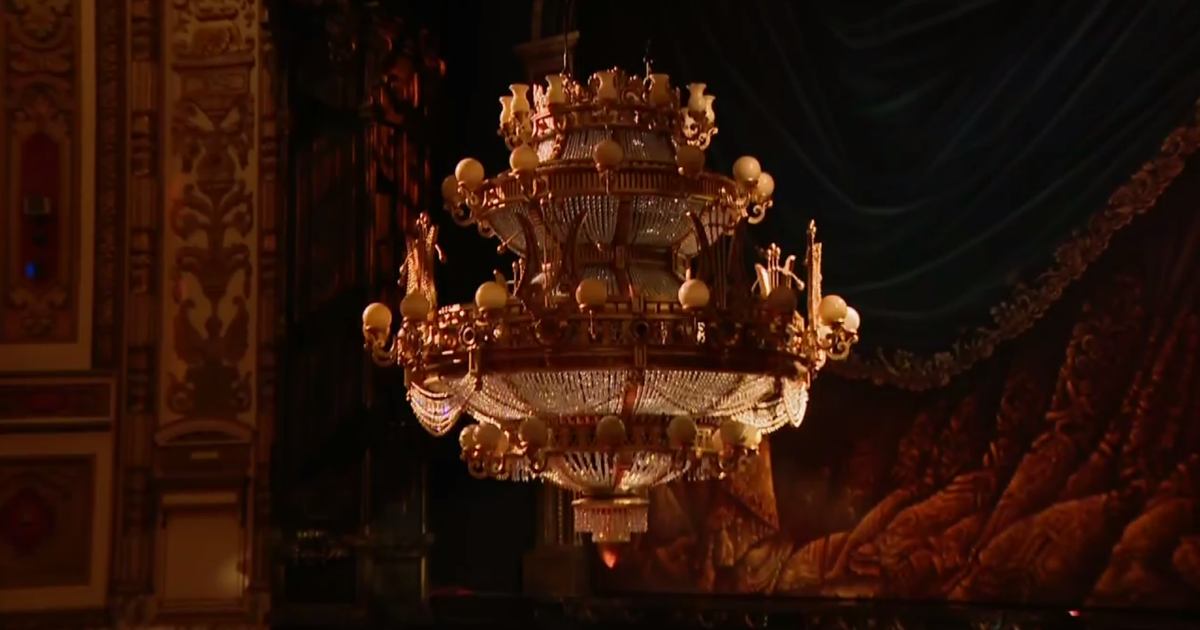Could a casino in Hell's Kitchen work? NYC developer Larry Silverstein bets on it.
The developer who rebuilt Ground Zero after 9/11 is now placing his bets on a casino in Hell's Kitchen.
Larry Silverstein, chairman of Silverstein Properties, had the patience of a saint to overcome the many obstacles in the path to rebuilding Lower Manhattan, but he's not resting on his laurels.
Hell's Kitchen casino bid
MARCIA KRAMER: You actually want to build a casino on the West Side. After all the stuff you went through at Ground Zero, you have not lost the taste for building. So, you want to build a casino near the Javits Convention Center. Why?
LARRY SILVERSTEIN: Well, because New York can benefit from the income that a casino will produce, and it's anticipated. The casino's really not meant for people who live in New York. It's meant for people from outside of New York, visitors who will come to New York.
MARCIA KRAMER: Do you really think visitors are going to be coming with all the turmoil that's happening on Wall Street?
LARRY SILVERSTEIN: You know, today no one knows. But tomorrow, hopefully.
MARCIA KRAMER: So, thing about this is that it's not the only casino bid that's being made. There are lots of casino bids all over the city, in Brooklyn and in Queens, and three in the same area where you wanna bid. There's one in Times Square, there's a proposal, and there's one in Hudson Yards. What makes you think that your proposal near the Javits Center is the one that's gonna be the winning bid?
LARRY SILVERSTEIN: Marcia, I think we've got the best location of the three, because we're in an area where no one objects. There's nobody to object in the area in which we're located. So there's the bus terminal, right? Mass transit. There's the convention center. It's a location where you don't have objections surfacing from the community in general. There's so many objections to the other sites. The only, the site that doesn't get any objections is ours because we're in an area where there's no controversy. This is an area where there are no people around who object to it.
MARCIA KRAMER: But people would say that Times Square would be a good place to go, because people go there as tourists. There's a lot to get them to go to Times Square. Why not Times Square as opposed to your location, which is really on the outskirts of the area?
LARRY SILVERSTEIN: I think our location is devoid of the masses of people who exist today, who populate the Times Square area. Times Square is just extraordinarily busy, extraordinarily congested. We don't have that congestion problem. We don't have any of that. So our location, I think from the standpoint of a location that could work, that no one has any objection to, I think we're in a very good spot for that.
MARCIA KRAMER: Does it help that it's near the bus terminal so people, if they wanted to, could take a bus and go gamble at your casino?
LARRY SILVERSTEIN: Absolutely.
MARCIA KRAMER: But also, the other question is this. The city and the state and the Port Authority, your friends at the Port Authority, want to rebuild the Port Authority Bus Terminal. Will that impede your plans to build a casino in the same area?
LARRY SILVERSTEIN: I don't believe so.
MARCIA KRAMER: Why not?
LARRY SILVERSTEIN: Well because they're slightly distant from each other. The bus terminal is 8th Avenue to 9th Avenue, in between 10th and 11th. So the immediacy is not that great, but it's close enough for people to utilize the bus terminal and walk over for the gambling.
MARCIA KRAMER: We have to point out though that there are only three licenses that are available for downstate. And some people think that the casino at Empire State in Yonkers has an inside track for that, and the racino that also exists at Aqueduct has an inside track. So that would mean that there's one license and a gazillion bids. How do you feel that you have a better chance than all the other people?
LARRY SILVERSTEIN: Of all of those, there's one casino that's going to be located in Manhattan.
MARCIA KRAMER: Right.
LARRY SILVERSTEIN: And we think we have a great shot at that one.
MARCIA KRAMER: But there's also somebody who wants to build one on the East Side, near the U.N.
LARRY SILVERSTEIN: Mass transit in that location, it's devoid of it. That's the problem. Mass transit is terribly important.
MARCIA KRAMER: So did you buy this piece of property with the idea of building a casino right there?
LARRY SILVERSTEIN: Honestly, no. We've had the property for some time.
Rebuilding Ground Zero after 9/11
MARCIA KRAMER: So, to switch gears for a second, you've written a book. It's called "The Rising." I want you to see it. And it is about the trials, tribulations, the good times, the bad times of trying to rebuild on Ground Zero after a horrendous, horrendous terrorist attack. But first we have to point out, you actually bought the property six weeks ...
LARRY SILVERSTEIN: Before 9/11.
MARCIA KRAMER: So, did you, when it happened, you must've been like crazed.
LARRY SILVERSTEIN: I was totally shocked, like everybody else was. But having purchased it just six weeks prior to 9/11 was a staggering experience.
MARCIA KRAMER: Well what went through your head when you saw the towers coming down? Didn't you have offices there at that point?
LARRY SILVERSTEIN: We were extraordinarily fortunate because, I had two children on their way to working in the temporary offices on the 90th floor of the North Tower.
MARCIA KRAMER: Oh my god.
LARRY SILVERSTEIN: And fortunately, this happened, the first building came down, first plane hit the North tower, at about a quarter of 9. If it hit at 9:00, it would've been a disaster, for me, personal disaster because I could've lost two of my children, as happened we lost four employees of Silverstein Properties, with eight children between them. That was extremely difficult. And then of course we lost almost 3,000 people working in and around the trade center, plus the first responders. That was a horrendous experience. And it's something you could never forget. I could never forget that.
MARCIA KRAMER: So you wake up the next morning, and all of your properties are rubble, not to mention the fact that it was still on fire, and it took months to put the fire out, and all the people who had perished. What were your thoughts? Were your thoughts, I'm going to try to rebuild? Were your thoughts, oh my god? What were you thinking?
LARRY SILVERSTEIN: Marcia, the governor, Governor Pataki, called me, I think, two days after 9/11. I think it was about 7:00 in the morning, and he called and he said, he said, "Larry, what do you think we ought to do?"
MARCIA KRAMER: And you said?
LARRY SILVERSTEIN: I said, "Governor, the World Trade Center was the locomotive for all of the commercial activity in Lower Manhattan." I said, "If we don't rebuilt that, Lower Manhattan is going to fade away." I said, "It's got 12 mass transit lines feeding it." There was so much dynamic activity in Lower Manhattan, basically the world of finance. I said, "I really think it's gotta get rebuilt, and the sooner we do it, the better it is."
MARCIA KRAMER: Did you have any doubts, that you could do it?
LARRY SILVERSTEIN: You know, it didn't occur to me. I didn't think about that. I just knew it had to be rebuilt.
MARCIA KRAMER: But it was a yearslong and very difficult project.
LARRY SILVERSTEIN: It's only taken me 23 years.
MARCIA KRAMER: But the thing about it is, is that, did you ever have doubts? I mean you had to deal with a series of mayors, a series of governors, you know, insurmountable hurdles. What was the most difficult part of it?
LARRY SILVERSTEIN: I think the most difficult part was the five years of litigation with 22 insurance companies who decided they didn't want to pay five cents of their obligations to me, in terms of, in terms of what I was entitled to.
MARCIA KRAMER: Did you ever end up getting the money back that you had to use to fight the insurance companies?
LARRY SILVERSTEIN: We got some monies that we had to use to fight them, no. But at end of day, what we've received from the insurance companies was about $4.3 billion. As it turns out, we've spent far, far more than that in rebuilding the trade center.
MARCIA KRAMER: Do you think it was an economically beneficial thing to do for the Silverstein company?
LARRY SILVERSTEIN: I wouldn't, you know, I never thought about the economics. What I did think about was the necessity of getting it rebuilt. And, I dedicated myself to doing exactly that. But I'll also tell you, Marcia, I never believed it would take 20 years or 23 years to do it.
MARCIA KRAMER: Did you believe you'd be able to do it?
LARRY SILVERSTEIN: I'm sorry?
MARCIA KRAMER: Did you believe you'd be able to do it?
LARRY SILVERSTEIN: I felt I had an obligation to do it, in the lease that I signed I was 71 years of age when I signed a 100-year lease with the Port Authority.
MARCIA KRAMER: So when you're in your office and you look out, over what is now a totally rebuilt area, what's your feeling?
LARRY SILVERSTEIN: I have a sense of tremendous pride at, as I look down, I say to myself, and I look at it everyday because we live there, and so, it strikes me as if we've done a pretty good job at rebuilding. And it gives me a feeling of, of satisfaction. And so, I'm proud of all we've done.
MARCIA KRAMER: Well we're going to have to leave it right there for now. But up next, a new movie about an old problem. We talk to the people behind "Drop Dead City -- New York on the Brink in 1975."
Click here to watch Kramer's entire interview with Silverstein.

